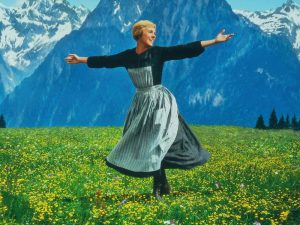You will learn soon enough that I have no shame.
After selling some of my textbooks to Sundance, I had a decent hunk of cash to spend wherever. I could have purchased noise-blocking headphones so I wouldn’t hear the Kelly’s patrons fighting and smashing bottles outside of my bedroom window. I could have purchased the new Halsey album so I could play it at parties and my sorority siblings would think I’m cool. Instead, I purchased that gigantic Hamilton book; you know, the hardcover that was in the Sundance window for a month with all the information about Hamilton the musical. I’m the sucker that bought it.
While half of the book is juvenile gushing about how great Lin-Manuel Miranda is by some no-name writer (and I refuse to feed egos), the other half made me read closer than I’ve read any form of literature in a long time. Every song was typed out and annotated by Miranda, explaining how he chose specific words and phrases for each verse. Within the first third of these annotations, Miranda introduced the term “tonal assonance” to his readers (I donated the book, so I can’t give you the direct quote). As it turns out, tonal assonance is Miranda’s “thing.” He is particularly good at maintaining tonal assonance in a verse. His consonance generating skills aren’t too shabby, either.
Let me show you: in Cabinet Battle #1, Jefferson and Hamilton are arguing about whether or not the federal government should assume state debt. One of Jefferson’s lines is as follows:
“…Our debts are paid, I’m afraid
Don’t tax the South cuz we got it made in the shade”
For a Hamilton lyric, four assonance matches is pretty common. Keeping a set of assonance matches in one or two lines is similar to what we read on Monday. This next set from Hamilton’s rebuttal to Jefferson, however, looks somewhat different:
“Thomas Jefferson, always hesitant with the President
Reticent—there isn’t a plan he doesn’t jettison
Madison, you’re mad as a hatter, son, take your medicine
Damn, you’re in worse shape than the national debt is in”
That quote represents ten seconds of rapping. That’s eight assonance matches in ten seconds! I’m sure we’ll cover this in class at some point, but the placement of the assonances is fascinating to me. So, we have four at the ends of these period-less lines (I don’t know the precedent for punctuation in song lyrics). But then, within those first three-to-five syllables at the beginning of each line (besides the last one), there are assonances. And even without the assonances, Miranda keeps the “s” consonance with “shape” in the last line. And the “hesitant” placement seems arbitrary until you hear it, and it sets the whole section of this verse. As you can see, I don’t quite have the academic language to describe what’s going on yet, but I do find it important to show (myself, mostly) that I’m seeing something here.
Also, the myriad of word options one has when creating assonance and consonance is exemplified immaculately in this chunk of lyric. At a glance, “son” and “cine” are not alike. Depending on how one pronounces them, however, they can sound alike! Isn’t that cool? Maybe you guys already knew that, but I think that’s really cool. I suppose it’s about being able to hear different pronunciations of things in one’s head while writing to create this. I bet we’ll cover that in class, too.
My mind is a bit blown. I was never taught to think about how the meaning of written work changes depending on how the words sound both by themselves and together. Paying attention to how I say words was emphasized (I took voice lessons for a long time), and finding words that didn’t sound “clunky” together while writing was part of my education at some point, but nothing deeper than that. And even though I’m perfectly comfortable reciting memorized works, I don’t like reading new works out loud. I become wary of how I say things and how quickly or slowly I read, and I stumble over words like a second-grader when I’m reading something out loud that I haven’t read before. I don’t like surprises, from obnoxiously loud motorcyclists speeding up my childhood road to being called on to contribute noise I didn’t plan on contributing.
For me, sounds can evoke fairly intense, emotional reactions. I slammed my hands over my ears when Jeremy Jackson read aloud Corinne Enright’s explosive short story about hearing voices, and I cried when I listened to Kendrick Lamar’s Damn backwards for the first time. But emotional intensity sometimes leads to intellectual clarity, and more than anything I search for that clarity. I want to understand things. I guess (or I hope) sound in poetry will be the next thing.




